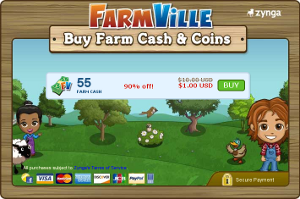The Bank of Tomorrow
by Stephen Fluin 2012.07.17
With technology as advanced as it is today, it's time for banking to take a step forward. I would like to see the following advancements ASAP. These would make me a happier consumer, and if banks and retail stores and websites offered these things, I would even change my buying and banking habits.
These areas seem to be left behind under the guise that "this is how it's always been done". I feel like this is a terrible reason, and that banks and financial transactions need to be modernized quickly. I know we will never get there, but I would like to be able to use Bitcoins at the grocery store.
Digital Receipts
When I go to Target to purchase supplies such as light bulbs, groceries, or even Halloween decorations, completing my transaction results in a long piece of paper listing all of the things I purchased. For me, my standard response is to stuff this piece of paper into my wallet, and as soon as I get home, I throw it away.
I feel like the tracking of what was purchased is critical, but the piece of paper is silly. From Target's perspective, they still have a complete record of the transaction. If I want to return an item to the store, I don't need to bring the piece of paper with me, they can look it up in the computer in about the same amount of effort as scanning the little slip.
How it should work is that when I make a purchase, the receipt is stored digitally with my bank. When I write a check, they store the image and I can click on the transaction to see it. The same should be true of all of my purchases, detailing the subcomponents of each transaction symantically. Imaging a world where Mint.com can see not only that I spent $100 at Menards, but it sees that I spent $95 on new appliances, and $5 on snacks at the checkout counter. This would enable more detailed tracking, and completely eliminate the ridiculous piece of paper.
Digital Preferences
Retailers seem to be wising up to the fact that credit transactions cost them a percentage of all sales. When you are selling millions or billions of dollars of products in a year, that really ads up. In order to combat this, more and more retailers are defaulting to debit transactions when the card allows it. This is fine by me, but the user experience for debit transactions is terrible.
The first thing I am asked to do is to enter my PIN. This seems like a reasonable step, and could be considered the second half of two-factor authentication. Then the process falls apart and I'm asked irrelevant questions like whether or not I want cash back, or if I "want it all on the card". Some individuals may see these options as a key part of the transaction, but I don't, and I imaging the average consumer always makes the same choices for these.
To solve this problem, I propose that banks store digital preferences with my account information. This would mean that rather than saying "no", I could say "never", or setup the preference in my web account. Then, when I perform a transaction, I'm not answering AGAIN the same answer over and over and over. We have the bandwidth and the connectivity and the technology for 2 way communication and for data storage. Let's use it.
Multiple Currencies
The creation of digital currencies is everywhere. It began as a trend towards "gift cards", but now has blossomed into a set of hundreds of first-order digital currencies. From Facebook dollars, to iTunes store credit, to Starbucks Gift Cards, we need to create a standardized market for translation of these currencies. The retailers and owners of these private currencies will resist this, but we have the opportunity to fight back against this. Imaging if your bank was able to automatically convert the Starbucks gift card you received for your birthday to make a purchase on newegg.com, as part of a normal transaction? There would of course be a small percentage fee for the processing, but it would give consumers control of their own money again. There are millions of dollars of savings, investments, and gifts locked up into these currencies that could potentially just disappear if the value of the currency changes, or if the company goes out of business, or if the credits expire (outlawed by the US government, but still legal in some places internationally).
permalink
